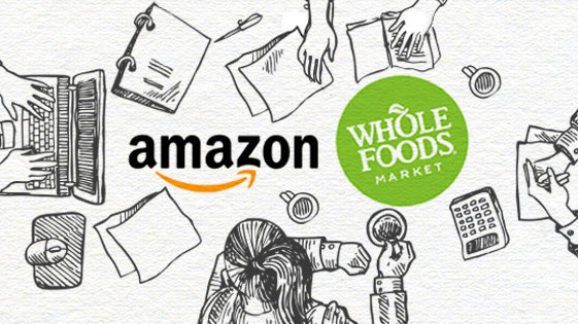Union Seeks to Protect Jobs of the Past Rather than Train Members for Jobs of the Future

 Marc Perrone, President of the United Food and Commercial Workers Union (UFCW), wrote a letter this week to the Federal Trade Commission requesting a review of Amazon’s acquisition of Whole Foods.
Marc Perrone, President of the United Food and Commercial Workers Union (UFCW), wrote a letter this week to the Federal Trade Commission requesting a review of Amazon’s acquisition of Whole Foods.
It is laughable that the UFCW and Mr. Perrone would issue a letter airing concerns over action they claim would be a “competitive threat to our economy.”
UFCW’s website is littered with announcements that state its opposition to free trade agreements.
More hypocritically, labor unions, long ago, secured their exemption from antitrust laws.
But it is obvious why UFCW has a keen interest in disrupting this purchase. The union is worried that Amazon’s purchase of Whole Foods will encroach on its territory in the grocery industry. While UFCW does not represent any Whole Foods’ workers, it has organized employees at Safeway, Albertsons, Kroger, and other grocery stores. Despite the letter complaining about the acquisition’s impact on competition, the UFCW’s desire is to limit competition for the grocery stores it already represents.
In the letter, Perrone argues the acquisition is about “destroying Whole Foods jobs through Amazon-style automation.” Reporters detailed these fears from Whole Food employees after the initial announcement. It is not a new phenomenon that people fear the impact of technology, automation, and innovation. But it is an unfounded emotion in response to robots.
As renowned economist Deirdre McCloskey recently wrote, “If the nightmare of technological unemployment were true, it would already have happened, repeatedly and massively.”
As I myself recently wrote, reiterating McCloskey’s point, technological advancement is an overall good:
If Amazon introduces more automation at Whole Foods, it’s possible that individuals will lose their jobs, but increases in productivity will boost demand that could, ultimately, require more human workers. Worker displacement comes with hardships, but historically, innovation has supported millions of jobs.
McCloskey also notes that gains from automation may not be realized in (for example) the auto industry, because “the auto union managed to extract monopoly profits from the company, and therefore from consumers.”
The better way to defray the negative impact on workers from automation is through better education, skills development, and removing restrictions on work and entrepreneurs.
Moreover, labor unions, like UFCW, could do more for its memberships than to sic a federal agency on business or seeking monopoly privilege from the government.
Since 1990, the UFCW has spent $69,962,445 on politics, according to the Center for Responsive Politics.
There are more effective ways for unions to spend their money. Unions could offer their members a tangible benefit in the form of skills training. Currently, there are six million job vacancies in the United States. And a common complaint from employers is that there are not workers available that can do the job.
Instead of UFCW trying to protect the jobs of the past, like cashier positions, which are already being automated, they could offer training or start apprenticeship programs to help prepare members to have the skills for the jobs of the future.